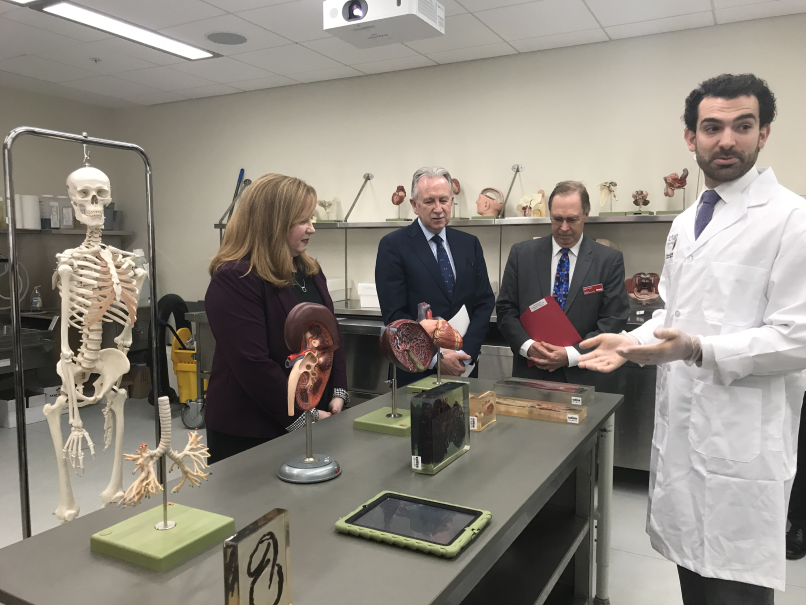McMaster and Brock universities have formally agreed to build on a partnership that has kept more graduates practising medicine locally.

On Wednesday, representatives from both universities signed a five-year extension of the health sciences collaboration, which is based out of the Roy and Lois Cairns Health and Bioscience Research Complex at Brock’s central campus in St. Catharines.
Paul O’Byrne, dean and vice-president of McMaster’s faculty of health sciences, said the model — called a distributed medical campus — is one of the reasons that McMaster’s medical program is ranked among the top 50 in the world.
“We believe that, as more than 80 per cent of our medical graduates will spend their careers working in a community setting and a community hospital system, the very best training will come from learning within such a system, with some of the very best physician educators available anywhere,” said O’Byrne.
Over 200 students have graduated from McMaster’s Michael DeGroote School of Medicine since it moved to Brock’s campus in 2012, with more than 60 becoming practising physicians in the Niagara region.
“It is much easier to have physicians agreeing to stay in a region when they’ve come, they’ve developed, they’ve learned, they get to know the region, get to know the people,” said O’Byrne. “And that’s, of course, the original thinking behind a distributed campus. And I think this is an example of how well it can work.”
- ‘Shock and disbelief’ after Manitoba school trustee’s Indigenous comments
- Canadian man dies during Texas Ironman event. His widow wants answers as to why
- Several baby products have been recalled by Health Canada. Here’s the list
- ‘Sciatica was gone’: hospital performs robot-assisted spinal surgery in Canadian first
Finding success with a distributed medical campus model hasn’t worked for every school, however. O’Byrne said there have been many similar attempts across Canada over the past 15 years.
“They have been often beset with real challenges getting the students access to hospital systems, working within other facilities owned by other universities, and so forth. And I would say that, in general, these challenges have taken years and years and years to overcome. That was not the case here.
“When this distributed campus started — and indeed, our other one up in Kitchener-Waterloo — we found instant acceptance of the idea of having our students, both in the hospital systems in K-W and here in St. Catharines and Niagara, as well as very willing collaboration and engagement of our partner universities.”
Now that both universities have signed on for another five years of collaboration, there are plans to build on their success.
Amanda Bell, regional assistant dean of McMaster’s Niagara Regional Campus, said those plans include increasing students’ training on how to deal with marginalized patients.
“People who have insecure housing, people who have victims of sex trafficking, people with addictions issues, and we are looking forward to including some of the Brock nursing students in some of our training and practical experiences around that,” said Bell.
“So that they really have a sense from the beginning of their clinical career how important it is to give care for these populations and how to do it in a sensitive and safe way.”
Since the partnership began in 2012, there have been 208 medical student graduates, 64 family medicine residents, 16 rural family medicine residents, seven emergency medicine residents and two general surgery residents.










Comments